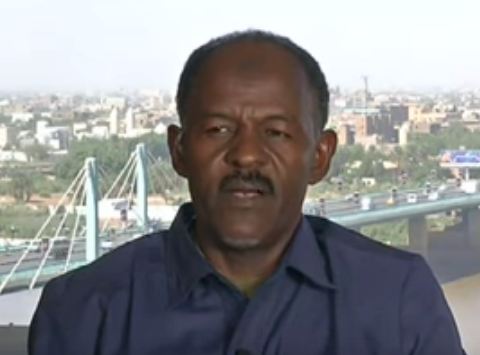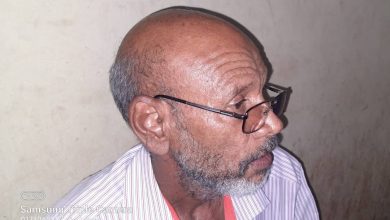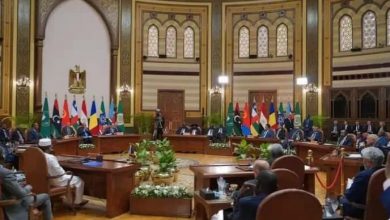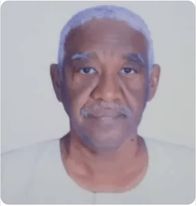ابراهيم شقلاوي يكتب في وجه الحقيقة: انتصارات الجيش تربك الحسابات السياسية للأحزاب
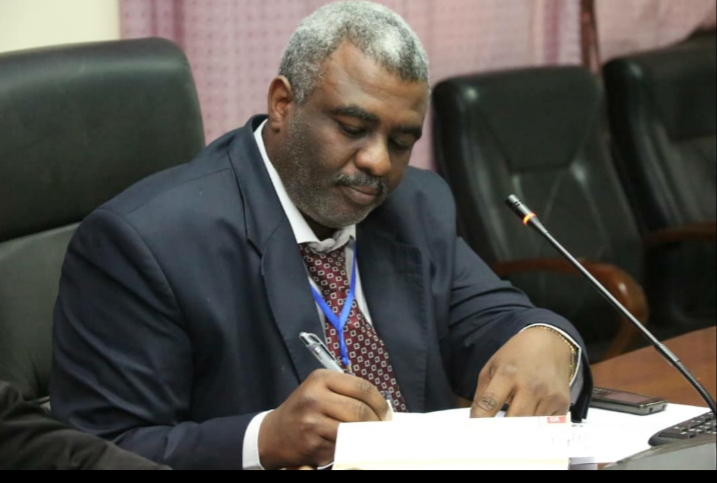
وجه الحقيقة. /- إبراهيم شقلاوي.
انتصارات الجيش تربك الحسابات السياسية للأحزاب.
في هذا المقال، نحاول رصد تطورات مواقف الأحزاب السياسية تجاه ما يجري في السودان، بالنظر إلى معطَيَيْن مهمين: الأول : انتهاكات مليشيا الدعم السريع المتجددة في ولاية الجزيرة السودانية، والثاني انتصارات الجيش السوداني في عدد من محاور القتال.
أصدرت تنسيقية القوى المدنية (تقدُّم) بياناً استثنائياً أدانت بموجبه مليشيا الدعم السريع إدانة واضحة، هي الأولى من نوعها بهذه الحدة منذ اندلاع الحرب في السودان في منتصف أبريل من العام الماضي، والتي تصاعدت فيها الانتهاكات ضد المدنيين في عدد من الولايات السودانية، وخاصة في قرى ولاية الجزيرة.
أشار بيان التنسيقية إلى تطورات الأحداث في شرق الجزيرة، وحمّل المليشيا مسؤولية الانتهاكات الواسعة في مدن رفاعة وتمبول والهلالية وعديد من القرى في شرق الجزيرة تعرضت لعمليات ترويع ضخمة، بلغ بعضها حدَّ نزع الحق في الحياة قتلاً بالرصاص لمدنيين عزل، علاوةً على عمليات نهب وسلب واسعة شملت الأسواق الرئيسية في مناطق عديدة في شرق وشمال الجزيرة، مما فاقم الأوضاع الإنسانية وقاد إلى نزوح جماعي من المنطقة.
دعت “تقدُّم” المليشيا إلى ضرورة الالتزام باتفاق جدة للترتيبات الأمنية والإنسانية الموقع في 11 مايو 2023، والالتزام بالقوانين الدولية لحماية المدنيين. اللافت في هذا البيان أن “تقدُّم” تحدثت عن ضرورة التزام المليشيا باتفاق جدة ولم تذكر وثيقة الشراكة التي وقعتها مع قائد المليشيا محمد حمدان دقلو في أديس أبابا في يناير الماضي، تلك الوثيقة التي مضت نحوها تقدُّم بعجلٍ ظناً أنها ستضمن بها شراكة سياسية مستقرة بعد الحرب المتهمة بإشعالها، حيث قدّرت قراءتها المتعجلة – أو ربما قراءة صانع الانقلاب – بأن سيطرة المليشيا على البلاد أصبحت مسألة وقت.
لذلك جاءت الوثيقة معبّرة عن التوافق على إقامة سلطات مدنية وحماية المدنيين وفتح مسارات آمنة للحركة والتنقل، وتعهدت فيها المليشيا بعدة التزامات، أبرزها فتح ممرات آمنة لوصول المساعدات الإنسانية في مناطق سيطرتها، وتهيئة الظروف لعودة المواطنين إلى منازلهم في المناطق المتأثرة بالحرب، بما في ذلك ولاية الجزيرة التي تستباح في هذه الأيام. لكن، وبعد مرور عشرة أشهر على هذه الوثيقة، ما زالت الأوضاع تزداد سوءاً وتعقيداً ولم يُنفذ أيٌّ من بنودها.
يعتبر مراقبون وثيقة إعلان أديس أبابا شكّلت حملاً سياسياً وأخلاقياً كبيراً على تنسيقية “تقدُّم”، بل كادت تعصف بوحدتها، إذ أنها لم تدفع اتجاهات السلام أو تُلزم المليشيا بتعهداتها التي قطعتها لحماية المدنيين أو السماح بدخول المساعدات الإنسانية، أو حتى تهيئة الظروف لعودة المواطنين كما نصت الوثيقة، بل زادت الانتهاكات وتضاعفت معدلات التهجير القسري
هذا ما يدفعنا إلى طرح سؤال مهم: إذا كانت تنسيقية “تقدُّم”، بقيادة عبد الله حمدوك، تملك قرارها ولا تخضع لإرادة دولية أو إقليمية متحكمة في الحرب، فلماذا لا تعيد النظر في جدوى شراكتها مع مليشيا الدعم السريع بعد تخليها عن الالتزام بالوثيقة؟ ولماذا تشير في بيانها في هذا التوقيت إلى ضرورة التزام المليشيا باتفاق جدة لحماية المدنيين، وهو اتفاق مهم بحسب خبراء ، كما يعد مدخلاً لإنهاء الحرب، رغم أن المليشيا ترفض الالتزام به أساساً؟ بالمقابل، ظلّت “تقدُّم” في أوقات سابقة غير متحمسة لتنفيذه، بل أبدت تحفظاً عليه لأسباب عديدة، منها أنه لم يتضمن إشارة إلى عملية سياسية. وهذا ما ظلّت “تقدُّم” تتخوّف منه، حتى بعد تبني مؤتمر القاهرة للأحزاب والاتحاد الأفريقي مسار العملية السياسية منفصلة قائم على الحوار السوداني-السوداني داخل البلاد.
لذلك، كان الأجدى أن تعيد “تقدُّم” النظر في اتفاق هي طرف فيه، بدلاً من اتفاق ظلت تتحفظ عليه باعتبار أنه يقر التخلص من المليشيا عبر آليات التسريح وإعادة الدمج وفق معايير الجيش السوداني ولا يتحدث عن عملية سياسية، هذا يدفعنا إلى القول: أن حديث “تقدُّم” في بيانها عن اتفاق جدة ربما يشير إلى وجود تفاهمات مع أطراف إقليمية أو دولية تعمل على طي ملف المليشيا لصالح السلام، وحتى يبدو موقفها منسجماً مع بقية الأحزاب .
هناك حديث متداول عن اجتماعات تُجرى في القاهرة هذه الأيام بين الأحزاب السياسية السودانية بهدف إيجاد مقاربة لوقف الحرب والانتقال إلى اليوم التالي. هذه المساعي ربما تؤيدها البيانات المتسقة الصادرة ضد مليشيا الدعم السريع التي أصدرتها عدد من الأحزاب السياسية السودانية وحركات الكفاح المسلح، والتي نددت فيها بالأحداث في ولاية الجزيرة، ومنها الحزب الشيوعي، التيار الإسلامي العريض، حزب الأمة بقيادة مبارك الفاضل، حزب الأمة القومي، الحزب الاتحادي الديمقراطي، وحركات الكفاح المسلح؛ جميعها أدانت انتهاكات مليشيا الدعم السريع والمجازر التي ارتكبتها في قرى ولاية الجزيرة.
بناءً على ذلك، يمكن القول إن الإدانة الواضحة من الأحزاب، التي شهدت إجماعاً لأول مرة تجاه انتهاكات مليشيا الدعم السريع، تمثل تحولاً مهماً في الموقف السياسي للأحزاب، وقد تسهم في تعزيز الحوار الوطني وتحقيق السلام والاستقرار في البلاد.
إذاً، فنحن أمام معطيات جديدة قد تُحدِث مقاربة استراتيجية في وحدة الرأي الذي يجمع على إدانة الدعم السريع، وربما تشكل هذه المقاربة عنواناً جديداً في الساحة السياسية في مقبل الأيام، بالنظر إلى الخطوات المتسارعة التي يمضي بها الجيش تجاه تحرير المدن واستعادة السيطرة التي اربكت حسابات الأحزاب السياسية الداعمة للمليشيا . عليه، يظل وجه الحقيقة في أهمية الاصطفاف الوطني لتجاوز مأزق الحرب بعيداً عن الصراعات الصفرية بين الأحزاب. كما نأمل في انتصارات حاسمة للجيش يحقق بموجبها السلام العادل للسودانيين ويستعيد الأمن والطمأنينة.
دمتم بخير وعافية.
السبت 26 أكتوبر 2024م. Shglawi55@gmail.com
*The Army’s Victories Disrupt Political Calculations for Parties*
In this article, we attempt to track the evolving positions of political parties towards current events in Sudan, focusing on two main factors: first, the recurrent violations by the Rapid Support Forces (RSF) militia in the Sudanese state of Al-Jazirah; and second, the victories achieved by the Sudanese army across various battlefronts.
The Civil Forces Coordinating Committee (CDCF) issued an exceptional statement unequivocally condemning the RSF militia, marking the first condemnation of its kind in such strong terms since the conflict erupted in Sudan in mid-April of last year. This conflict saw increased violations against civilians in several Sudanese states, especially in the villages of Al-Jazirah State.
The statement highlighted the developments in eastern Al-Jazirah, holding the RSF militia responsible for widespread abuses in the cities of Rufaa, Tamboul, Hilaliya, and many other villages in eastern Al-Jazirah. These areas reportedly suffered from massive terror campaigns, including the stripping away of the right to life, with unarmed civilians being killed by gunfire, in addition to extensive looting. The statement also condemned the looting of main markets in numerous areas in eastern and northern Al-Jazirah, which has worsened humanitarian conditions and led to mass displacement from the region.
CDCF called on the RSF militia to adhere to the Jeddah Agreement on Security and Humanitarian Arrangements signed on May 11, 2023, and to respect international laws protecting civilians. Notably, this statement from CDCF emphasized the need for the militia’s commitment to the Jeddah Agreement, while omitting mention of the partnership document it signed with RSF leader Mohamed Hamdan Dagalo in Addis Ababa last January. CDCF had rushed towards this document, hoping it would ensure a stable political partnership after the war, which has been blamed on sparking the conflict, mistakenly believing that RSF control over the country was merely a matter of time.
Thus, the document reflected an alignment to establish civilian authorities, protect civilians, and open safe passages for movement and transportation. The RSF militia committed to several obligations, primarily opening safe corridors to allow humanitarian aid into areas under its control and creating conditions for displaced residents to return to their homes in war-affected regions, including Al-Jazirah, which continues to suffer. However, ten months since the document’s signing, conditions have only worsened, and none of its provisions have been implemented.
Observers have considered the Addis Ababa Declaration a significant political and moral burden on the CDCF Coordination Committee, threatening its unity, as it neither advanced peace efforts nor ensured the militia’s fulfillment of its promises to protect civilians, allow humanitarian aid, or even create conditions for citizens’ return as stipulated in the document. Instead, abuses have intensified, and forced displacement of civilians has escalated.
This raises an important question: if the CDCF Coordination Committee, led by Abdullah Hamdok, possesses its own decision-making power and is not subject to the influence of dominant international or regional actors in the war, why doesn’t it reconsider the effectiveness of its partnership with the RSF militia after it has failed to adhere to the agreement? And why does it now, in its statement, emphasize the RSF’s commitment to the Jeddah Agreement on civilian protection, which is indeed important and recognized by experts as a key to ending the conflict, although the RSF initially refused to abide by it? Conversely, in previous times, CDCF had shown reluctance to implement the agreement, even expressing reservations due to its lack of a political process. This hesitation remained even after the Cairo Conference for Political Parties and the African Union adopted the framework of a Sudanese-Sudanese dialogue process within Sudan.
Therefore, it would have been more appropriate for CDCF to reconsider an agreement it is already a party to, rather than continue to hold reservations about an agreement it fears, as it calls for dismantling the militia through demobilization and reintegration according to the standards of the Sudanese army without mentioning a political process. This leads us to suggest that CDCF’s reference to the Jeddah Agreement in its statement may indicate new understandings with regional or international actors working to establish peace and restore security in the country, aligning its stance with other Sudanese political parties.
There has been widespread talk of ongoing meetings in Cairo these days among Sudanese political parties to create a roadmap for ending the war and moving forward. These efforts are perhaps reinforced by a wave of consistent statements condemning the RSF issued recently by several Sudanese political parties and armed resistance movements, denouncing the events in Al-Jazirah State. These groups include the Sudanese Communist Party, the Broad Islamic Movement, the Umma Party led by Mubarak Al-Fadil, the National Umma Party, the Democratic Unionist Party, and various armed resistance movements, all of which have condemned the RSF militia’s violations and the massacres it has committed in Al-Jazirah State.
Consequently, one could argue that the unified condemnation by political parties, witnessed for the first time against RSF violations, represents a significant shift in the political stance of these parties and could contribute to bolstering national dialogue, bringing peace and stability to the country.
Thus, we are facing new developments that may bring about a strategic alignment among those united in their condemnation of the RSF. This alignment could signal a new chapter in the political arena in the coming days, considering the rapid pace at which the army is advancing in liberating cities and reclaiming control. The face of truth lies in the importance of national alignment to transcend the crisis of war away from zero-sum conflicts among parties. We also hope for decisive victories by the army that will achieve just peace for Sudanese citizens and restore security and stability.
Best regards,
Saturday, October 26, 2024
Shglawi55@gmail.com

